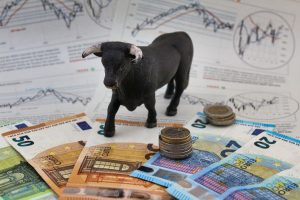What Is the Stock Market and How It Works?
Understanding the Stock Market: A Beginner’s Guide

The stock market can seem a bit daunting to those who are unfamiliar with it. However, in reality, it is a vital aspect of our economy, and the rise or fall of it can affect everyone. With the unpredictable events that we are currently facing, understanding the inner workings of the stock market has become more essential than ever.
In this article, we will simplify the concepts of the stock market, how it works, and how it affects the economy. Our aim is for everyone to understand what is going on in the stock market and how it could impact our personal finances.
What Is the Stock Market
First of all, a stock market is a platform where stocks and other securities are bought and sold. A stock is essentially a little piece of ownership in a company. Companies issue stocks of their business and sell them to the public to raise capital. When you purchase stocks from a company, you are directly investing in the company. Hence, when the company profits, the stock prices increase, allowing you to make capital gains. Related: Wealth
How Does Stock Market Work
Now, how does the stock market work? The stock market functions on the basis of supply and demand and is governed by the law of supply and demand. When a company’s stock is in demand, the price of the stock rises, when it is in low demand, prices decrease. So, those who own shares that are in high demand can sell them at a high price and make a profit. Contrarily, those who own shares in a low demand company may have to sell at a price that could even result in a loss.
Stock Market Economic Factors
Economic factors that impact the stock market include interest rates, inflation and government policies towards businesses. Stock markets are volatile as these economic factors frequently fluctuate; hence, the stock market’s performance is subject to significant changes in short timeframes.
The stock market acts as an indicator of the economy and can provide insight into how businesses are performing. A growing stock market is representative of a thriving economy and a successful business industry. When businesses profit, both the stock market and the economy grow. Conversely, when the stock market falls, businesses suffer, and the economy slows down.
Conclusion
The stock market plays a crucial role in our economic system. It is a platform through which businesses raise capital, and people can invest in these companies. The stock market is influenced by several economic factors like inflation, autocratic policies, and interest rates. The stock market is also an indicator of the economy. It reflects how well the business industry is performing based on the profits of the companies in the stock market. Understanding the workings of the stock market helps us make informed decisions while investing and keeps us informed of the trends of the stock market’s fluctuations, which can significantly impact our personal finances.

